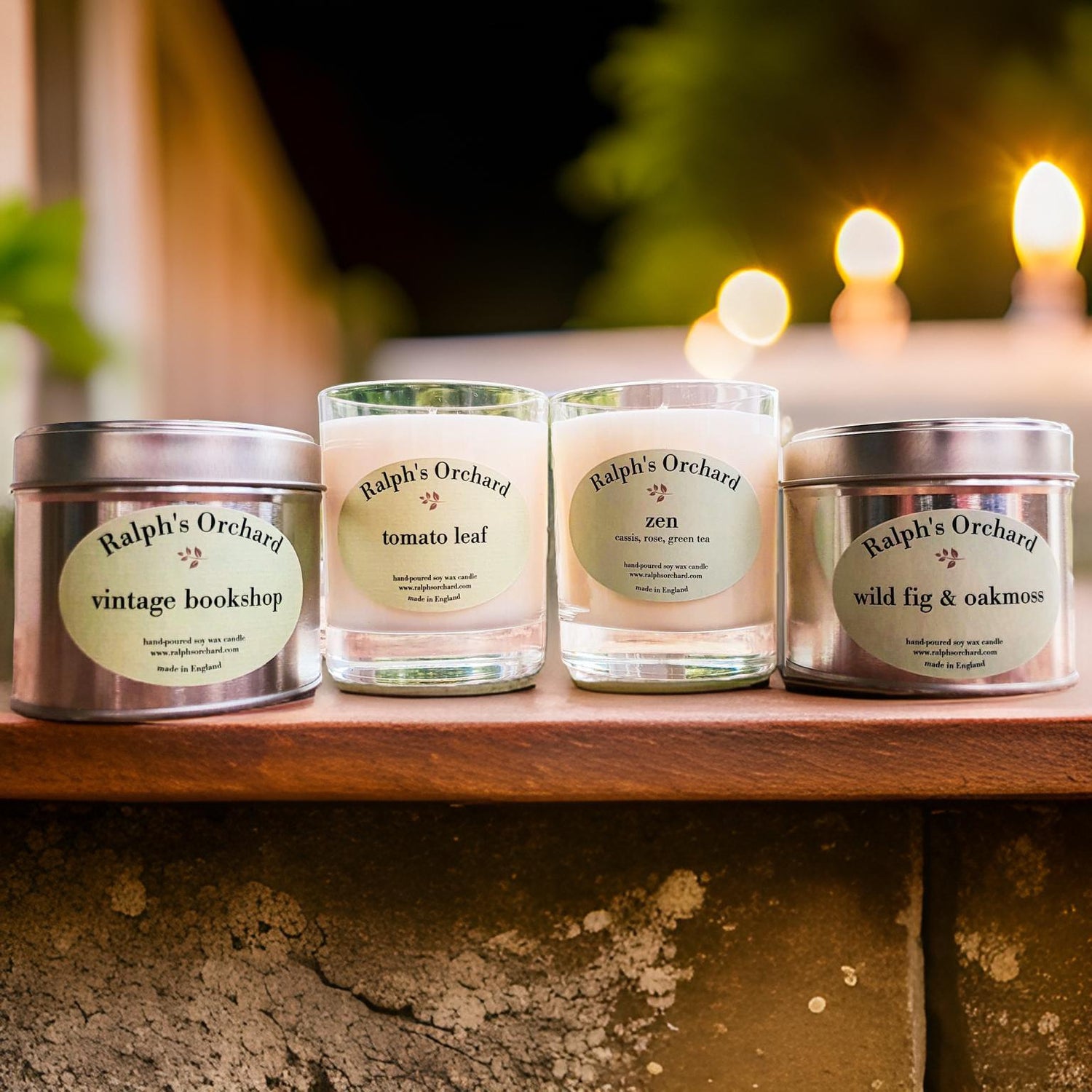
Essential Oils vs. Fragrance Oils: What’s the Difference and Why It Matters
When it comes to creating aromatic experiences, the choice of oil - essential or fragrance - plays a significant role. Both essential oils and fragrance oils have their own unique benefits, applications, and characteristics, making them equally valuable in the world of scented products. Let s dive into what sets these two apart and why neither should be dismissed.
What Are Essential Oils?
Essential oils are concentrated extracts from plants, capturing their natural aroma and beneficial properties. They re derived from various parts of plants like flowers, leaves, bark, or roots through processes such as steam distillation or cold pressing.
Uses:
- Commonly used in aromatherapy for their holistic benefits.
- Popular in natural products like massage oils, bath soaks, and lotions.
- Known for their therapeutic properties, such as promoting relaxation (lavender) or boosting energy (peppermint).
Benefits in Scented Products:
- Provide natural, earthy, and sometimes subtle fragrances.
- Often associated with wellness and eco-conscious lifestyles.
What Are Fragrance Oils?
Fragrance oils are synthetic or semi-synthetic blends designed to replicate specific scents, from floral bouquets to complex gourmands like vanilla latte or apple pie. Unlike essential oils, fragrance oils are crafted in a lab, allowing for an almost unlimited range of aromas.
Interestingly, many fragrance oils often contain essential oils as part of their composition. They use additional ingredients to enhance the performance of the essential oils, making them stronger, more stable, or less volatile. This blend allows fragrance oils to deliver consistent and long-lasting scents that essential oils alone may not provide.
Uses:
- Widely used in scented candles, room sprays, perfumes, and soaps.
- Ideal for creating consistent and long-lasting fragrances.
Benefits in Scented Products:
- Highly customizable and versatile, offering a virtually unlimited palette of scents.
- Often more stable in candles and soaps, ensuring the fragrance lasts longer.
- Can include scents that don t exist in nature (e.g., ocean breeze, fresh linen).
A Note of Caution: Choosing Safe and Ethical Fragrance Oils
While fragrance oils offer versatility and affordability, it s important to select high-quality options that align with your values and prioritize safety. Some fragrance oils may contain potentially harmful additives like parabens and phthalates, which can pose health concerns when inhaled or absorbed over time. Additionally, not all fragrance oils are created with ethical practices in mind.
What to Look For:
- Opt for phthalate-free and paraben-free fragrance oils to minimize exposure to harmful chemicals.
- Choose products from companies who provide transparency about their ingredients.
- Ensure the oils are cruelty-free, meaning they have not been tested on animals, and come from brands committed to ethical practices.
By selecting fragrance oils that are safe, ethically sourced, and free from harmful additives, you can enjoy their benefits with confidence. Prioritizing quality and ethical standards ensures a better experience for you, your loved ones, and the planet.
Debunking the Myths: Essential Oils vs. Fragrance Oils
1. "Essential Oils Are Always Better":
While essential oils are natural, this doesn t inherently make them better. Their scent profiles can be limited and less potent when exposed to heat, such as in candles.
2. "Fragrance Oils Are Harmful":
High-quality fragrance oils are rigorously tested for safety and can be free from toxins like phthalates. In fact, they allow for safer use of scents that might be irritating or toxic in their natural form.
3. "Natural Means Stronger":
Essential oils often provide subtle aromas, which can dissipate quickly in candles. Fragrance oils, on the other hand, deliver stronger, longer-lasting scents that can fill a room more effectively.
Choosing the Right Oil for Your Needs
The choice between essential and fragrance oils depends on your goals:
- For Therapeutic Benefits: Essential oils are the go-to for their holistic properties. A lavender essential oil candle can help you unwind after a long day.
- For Bold, Creative Scents: Fragrance oils let you explore unique, mood-enhancing aromas that aren t constrained by nature, such as seasonal favourites like pumpkin spice or candy cane.
Why It Matters for Candles and Beyond
Candle Performance: Fragrance oils tend to perform better in candles, ensuring the scent carries throughout the burn. Essential oils, while wonderful for subtlety, may require blending with fragrance oils to achieve similar strength.
Sustainability and Cost: Fragrance oils are often more sustainable since they don t rely on large quantities of natural resources. They re also typically more affordable, making luxury aromas accessible.
A Balanced Perspective
Both essential oils and fragrance oils have a place in the world of scented products. Essential oils bring nature s essence into your home, while fragrance oils offer unparalleled creativity and longevity. When selecting products, consider what you value most: natural simplicity or vibrant variety.
In the end, the best choice is the one that aligns with your lifestyle and preferences. Whether you re lighting a candle to relax, energize, or simply enjoy a cosy ambiance, the right oil is the one that makes you feel at home.
Check out this BBC article for great further insight.
Which type of oil do you prefer in your candles or home fragrance products? Let us know in the comments below!
